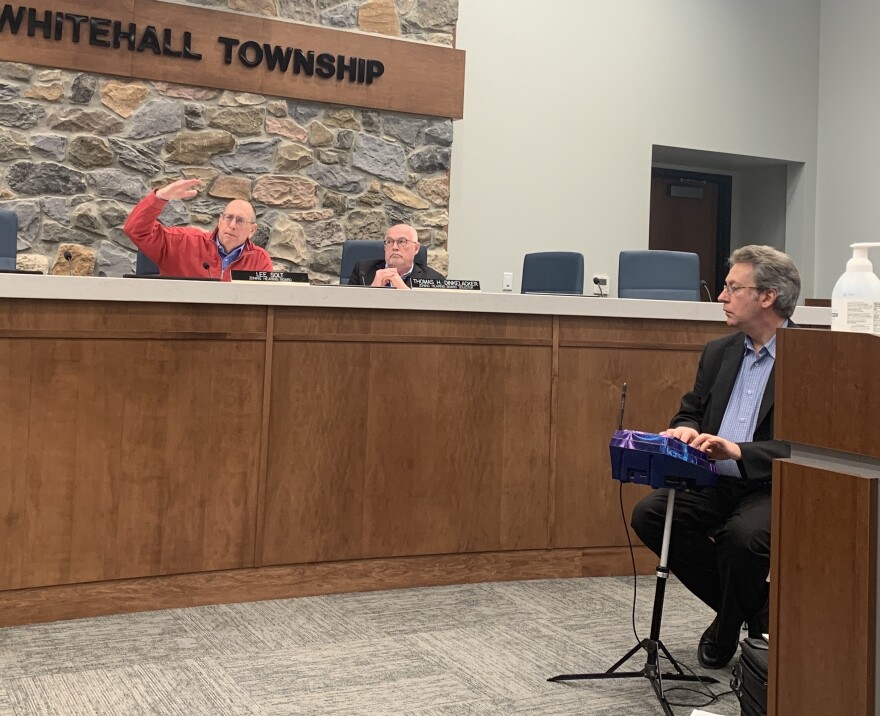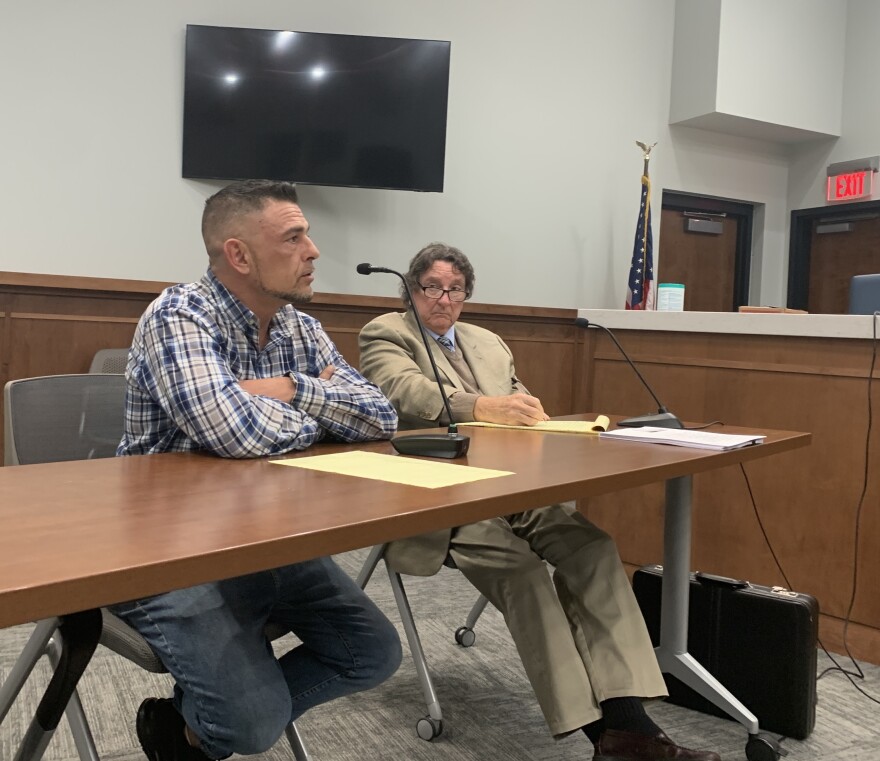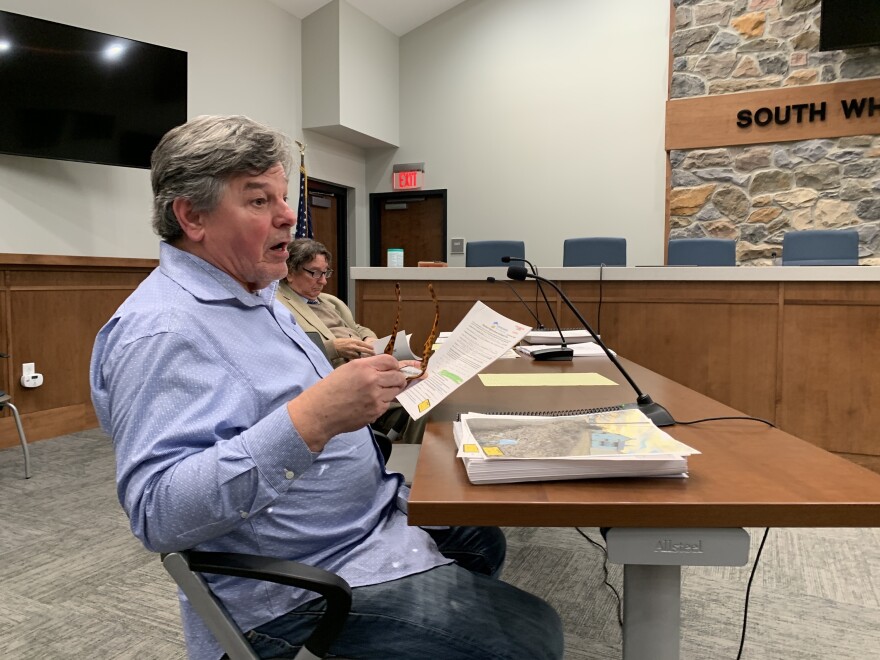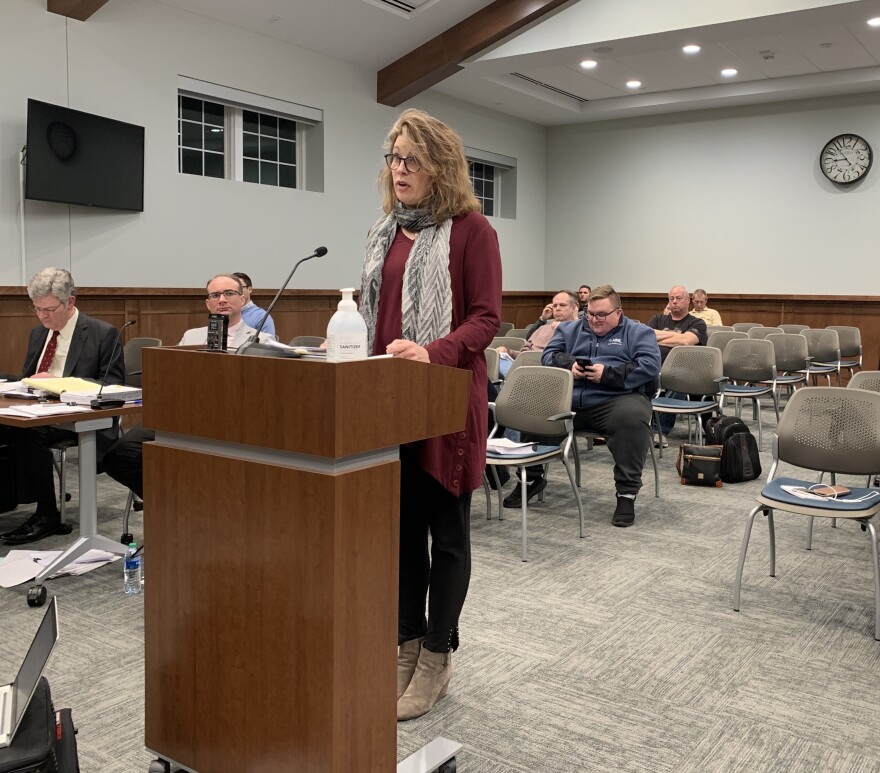SOUTH WHITEHALL TWP., Pa. — After three previous hearings about a proposed drug and alcohol recovery house next to Cetronia Elementary School, South Whitehall Township Zoning Hearing Board finally heard from the public Thursday.
People who spoke in favor of the facility said recovery houses benefit those struggling with addiction.
Those who spoke against it all said they supported the idea of recovery houses, but not next to the school at 3599 Broadway.
- The latest hearing about the proposed recovery house next to Cetronia Elementary featured public comment
- Some spoke about the need for these facilities, and others spoke about the potential harm it could bring to the children
- The public can comment at the next hearing at 7 p.m. Feb. 14
The facility's proposed location used to be Trexler Park Manor, an assisted-living facility that closed in 2014. It's been vacant since.
Township zoning laws that cover the property allow for an assisted living facility, and applicant Moyer Construction LLC, who owns the land, argues that a recovery house is sufficiently similar in character.
Recovery houses are privately owned homes for people recovering from drug or alcohol addiction — typically for people exiting drug rehabilitation programs. The facilities typically have a sobriety requirement.
They can be certified by the state, but that's not required for them to operate. Rios said the proposed facility would be certified.
The property would house 38 residents and four managers, according to Jeremy Rios, co-owner of Rios Recovery LLC, the company that would operate the facility.

Zoning hearings function like a court, with opening statements, sworn witnesses called to testify and cross-examinations. Zoning Hearing Board member Lee Solt presided over the meeting as the hearing officer — a change that was decided at an earlier Zoning Hearing Board meeting because of issues meeting a quorum.
Public comment
Ten people spoke during the public comment section of Thursday's hearing. Four were in favor of the proposed facility and six against it.
“We should not tarnish the safety net an education can provide by introducing a sober facility next door.”Patrick Foose, Parkland School Board director
Parkland School Board member Patrick Foose, speaking as a resident, said he has sympathy for those struggling with addiction, but the safety of the district’s children should come first.
“Students are naive to the complexities of life and haven’t lost their sense of optimism,” Foose said. “We should not tarnish the safety net an education can provide by introducing a sober facility next door.”
Resident Chris Pirrotta, who is a parent of two children at Cetronia Elementary School, said he thinks the testimony from the operators of the proposed facility show that it would be run in a “casual and confused” manner. Pirrotta also spoke about the risk of relapse.
“If 20 to 40 percent of these people relapse in these homes, it isn't the smartest thing to have next to a school with no fences, no walls, no nothing,” Pirrotta said.
“The way we run things, addicts helping addicts — this is the formula that gives back to the community."Efraim Mick Valentin, Whitehall resident
Whitehall Township resident Efraim Mick Valentin said recovery houses help people stay on track in their recovery by putting them in a sober environment.
“The way we run things, addicts helping addicts — this is the formula that gives back to the community,” Valentin said. “Sure, you'll have one or two that don't make it. But you still help those people along the way.”
Strategic advisor for Bridge Beyond Addiction Robert Livingston said he thinks that while the regulations of the facilities are different, they are similar in a broader sense.
“They're [both] trying to form community, they're trying to provide resources and connection to resources — they're providing a lot of the same things,” Livingston said.
Livingston also argued that Rios Recovery LLC should not have to have the finer details of the proposed facility’s operations figured out before the board makes a decision, since Moyer Construction LLC could decide to choose a different company to manage the facility.
Livingston testified as a witness for Moyer Construction in a previous hearing.
Rios testimony

The hearing began with testimony from Rios. He already testified at a previous hearing, but Solt had more questions for him regarding operation of the proposed facility.
Rios said that Moyer Construction LLC would own the facility and Rios Recovery LLC would operate it. Two managers of the facility would live in the neighboring apartments, and two of the residents living inside would help enforce the rules.
During cross-examination, Parkland School District lawyer Matthew Deschler asked Rios if there were any other recovery houses licensed by the state that have 38 or more residents. Rios said no, but there are recovery houses that are that size in other states.
Deschler also asked if there were any criteria for determining when a resident was ready to leave a facility. Rios said no; residents leave when they feel ready.
Other testimony
One of the other parties in the hearing, resident William Allen, called resident Laura Warmkessel as a witness.
Zoning hearings allow people to be designated parties if they have a vested interest in the decision. Allen is a nearby resident who also said he is a recovering addict.
Warmkessel summarized the regulations for assisted living facilities and pointed out the differences from recovery houses. Unlike assisted living facilities, recovery houses do not lock residents inside at night, do not have medical personnel on site and do not prohibit residents with prior criminal convictions from living there.
Warmkessel said she supports recovery houses in general.
“But just like anything else, location is key,” Warmkessel said. “And next to a school — just from pure zoning [perspective] the recovery house has no place here, because it is just simply not zoned.”

Allen also spoke about the differences in the regulations, showing Solt that the book of regulations for assisted living facilities is much larger than the one for recovery houses. He also spoke about his own struggles with addiction.
“I dug my way out of a hole… then I had children and I looked for a better place to live, and it’s where I live today,” Allen said. “I moved to the Parkland School District to have my kids have a great education and not be subjected to an addict lifestyle.”
Resident controversy
There was controversy on social media surrounding the location of the proposed recovery house when the issue first came before the zoning hearing board. A Facebook post about it was shared more than 50 times.
The comments included residents who opposed the construction of the facility because of its location near the school. Others supported it, saying recovery houses are needed in the area.
In an earlier interview, co-owner of Rios Recovery LLC Taihla Rios said the company is considering other locations for new recovery houses, but would like to build one at this location because there is more space and it could be a larger community than the others.
“We could do bigger and better things with this space,” Taihla Rios said.
The first hearing on the matter was Dec. 1 and included opening statements and testimony from Moyer. At the second hearing on Jan. 5, Rios and another witness argued in favor of the recovery house.
The third hearing on Feb. 1 included testimony in favor of the recovery house and from Cetronia Elementary School Principal James Giaquinto.
The next hearing will be 7 p.m. Feb. 14. Zoning board solicitor Thomas Dinkelacker said the public can comment at the next meeting, as well. The parties also will give closing statements.


